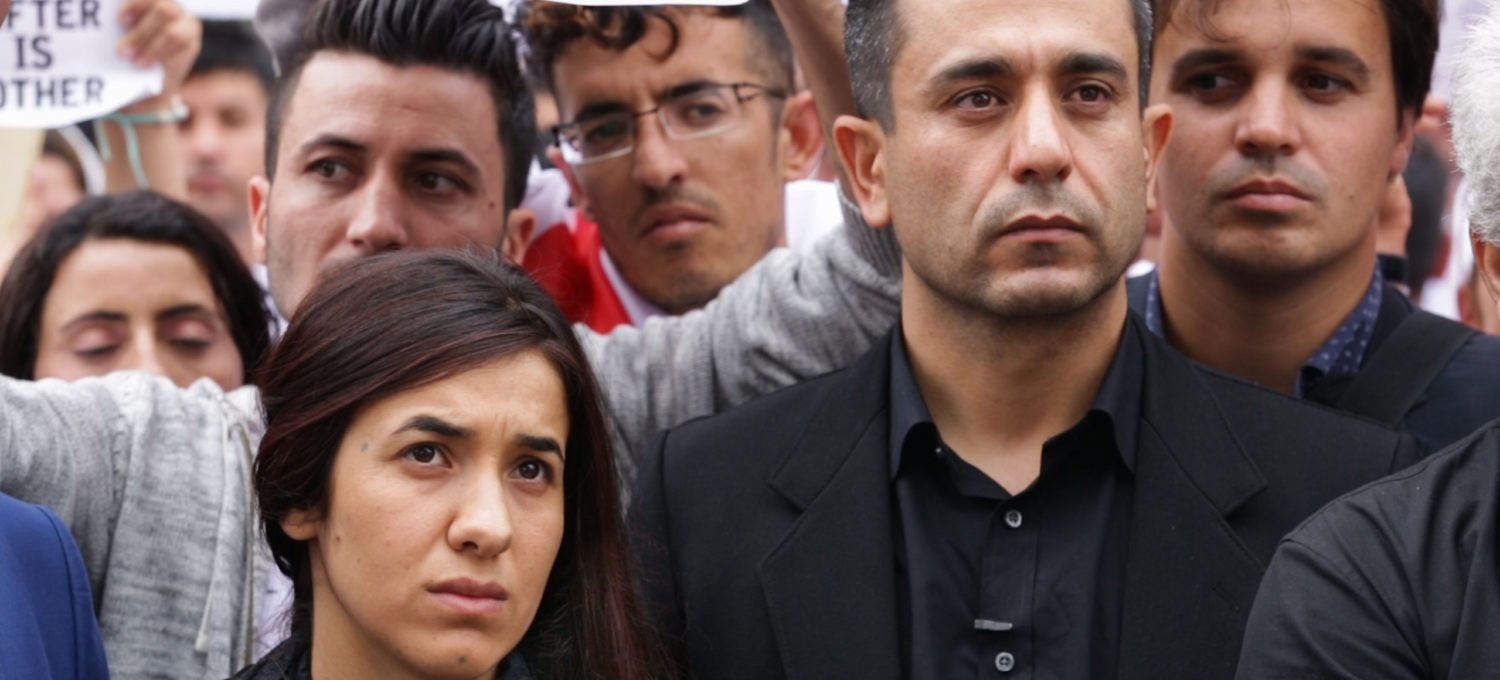The Yazidis are a Kurdish religious minority that has recently been displaced from their northern Iraq homeland by ISIS. They make up about half a million of the 60 million global refugees. Starting in 2014, ISIS has waged genocide on the Yazidis, slaughtering thousands, imprisoning girls and young women in sex slavery, and forcing conversions. On Her Shoulders tells the story of Nadia Murad Basee Taha, a young woman who escaped sex slavery and is now an activist for the Yazidis, fighting to bring legal action against ISIS in international court.
On Her Shoulders is simultaneously a celebration of Nadia’s courage and heroism (she perseveres through constant death threats) and a glimpse into how human rights’ “celebrities” are created and used. Furthermore, it is a criticism of the international community’s collective inability to more effectively counter the work of ISIS (if beheadings and child sex slavery and rape won’t move us to greater action, what will?). Thankfully, Nadia isn’t alone. She has a powerful team around her including Murad Ismael, executive director of Yazda (a global organization supporting Yazidis around the world), Ahmed Khudida Burjus, deputy executive director of Yazda, Amal Clooney (famed international and human rights lawyer), and even the doc’s director Alexandria Bombach. They all, in unique ways, amplify Nadia’s witness.
An early goal of Nadia and her team is to address the UN General Assembly and plea for greater support of Yazidi refugees and legal action against ISIS generals. The film follows Nadia and her team as they gain international support and, essentially, lobby for the privilege of addressing the General Assembly, fine-tuning her speech through numerous appearances and press interviews.
On Her Shoulders also forces us to consider the notion of celebrity. There is reference to Malala Yousafzai, another young woman who took a stand against violent religious extremism. The doc shows the role that the media plays in both amplifying and exploiting stories like Nadia’s and Malala’s. Consider the countless interviews that begin with the apology, “I know this will be difficult/painful/unfair, but will you please tells us what happened to you while you were in ISIS captivity?” Each time, Nadia must relive those horrors for the (ratings?) benefit of her host.
In talking about her film, Bombach commented, “I think with Nadia, she is telling her story over and over and over again, and I didn’t want to just focus on that story. I wanted to focus on what it’s like to have to tell that story. It took a piece of her every time.” But, of course, humanity can’t (won’t) be set free from the curse of ISIS until the truth of ISIS is told by women like Nadia. On Her Shoulders reveals the toll that that truth-telling takes on these survivors and their supporters.
On Her Shoulders won the U.S. Documentary Directing Award at Sundance and is featured in SXSW’s Festival Favorites section.
